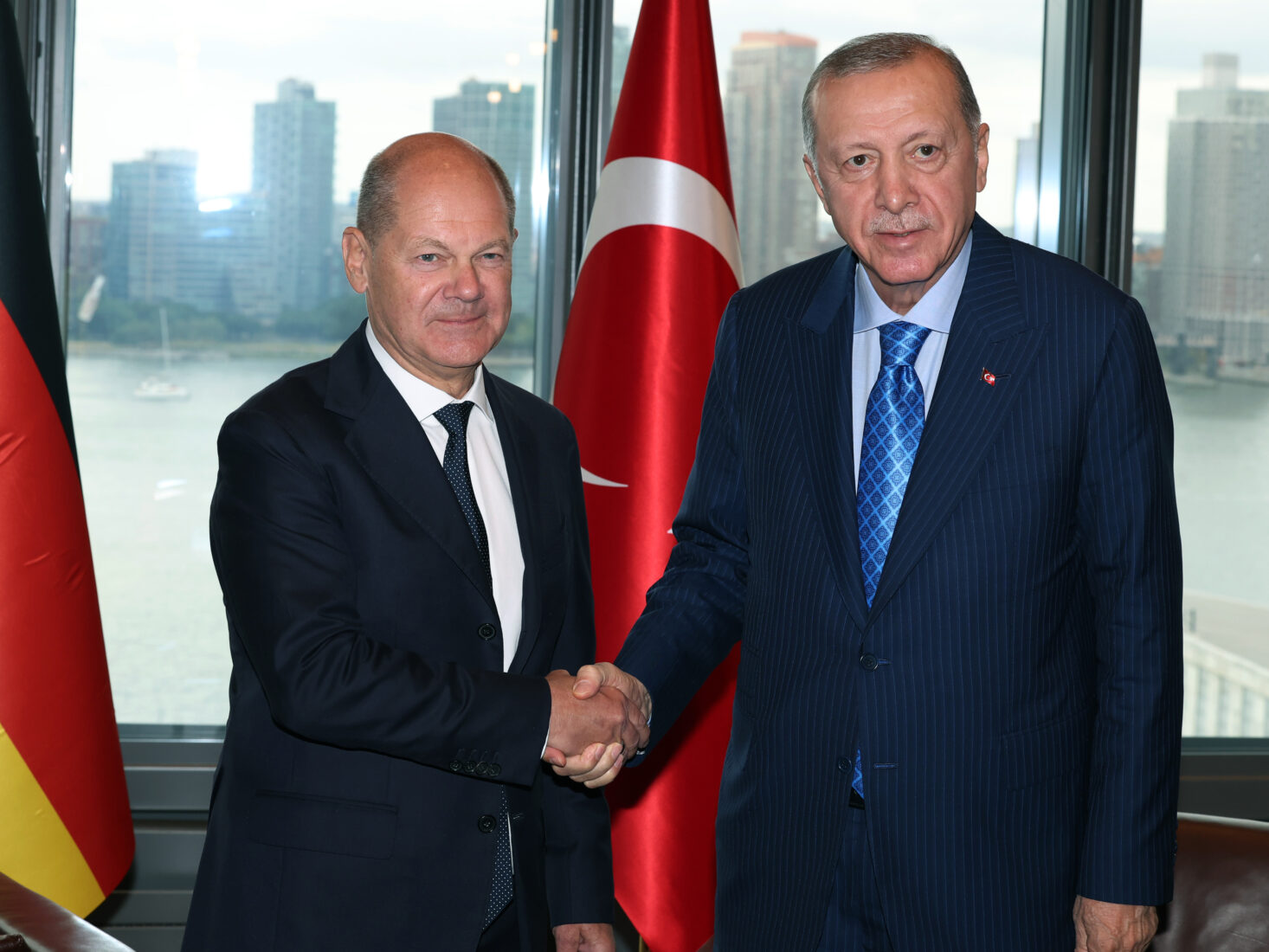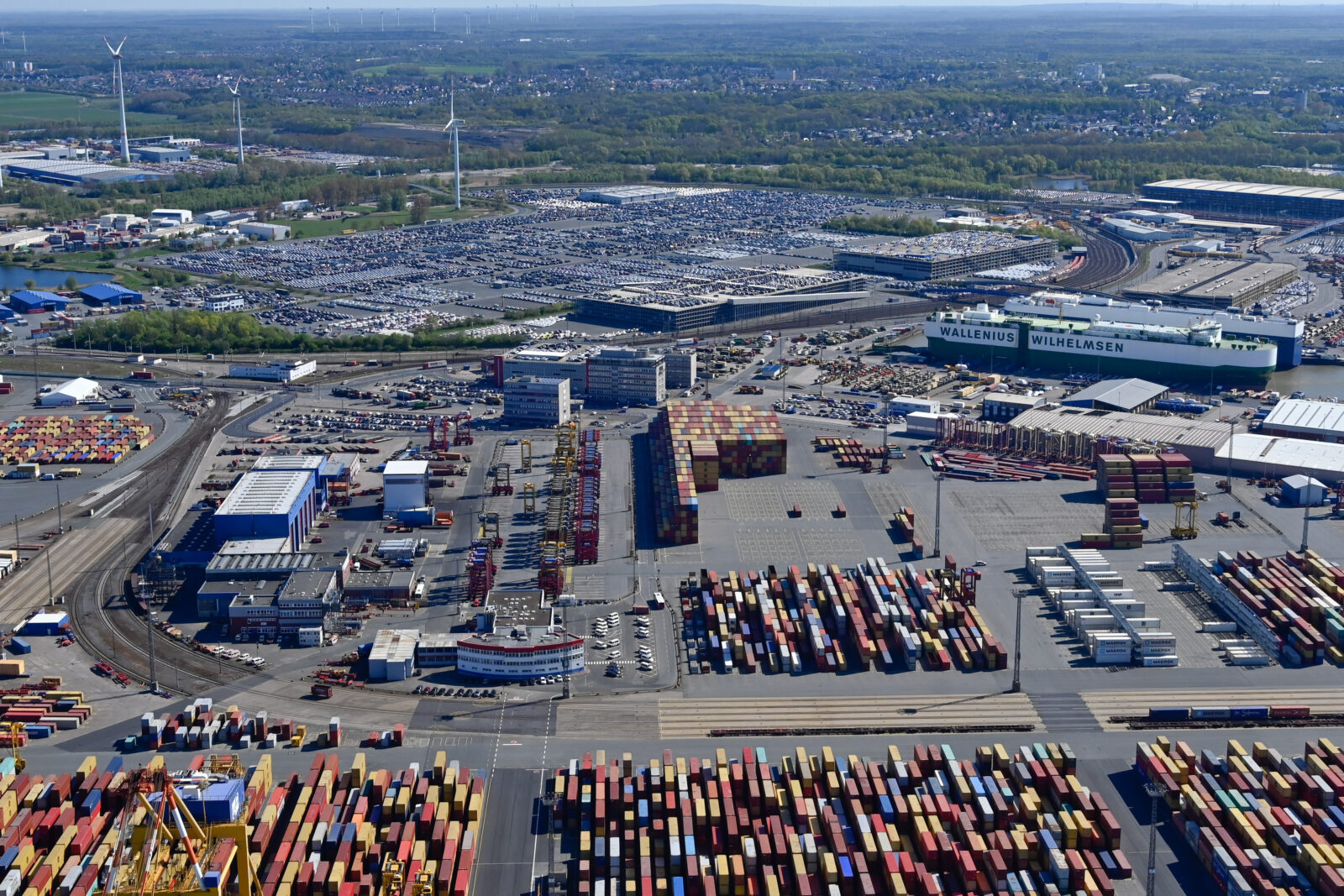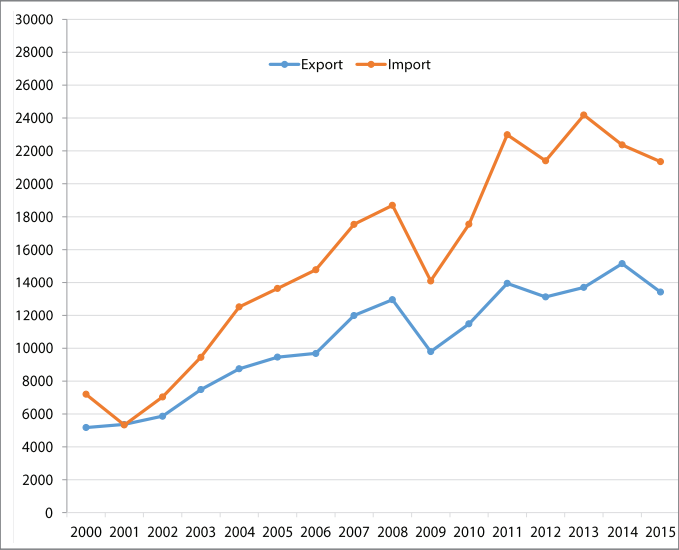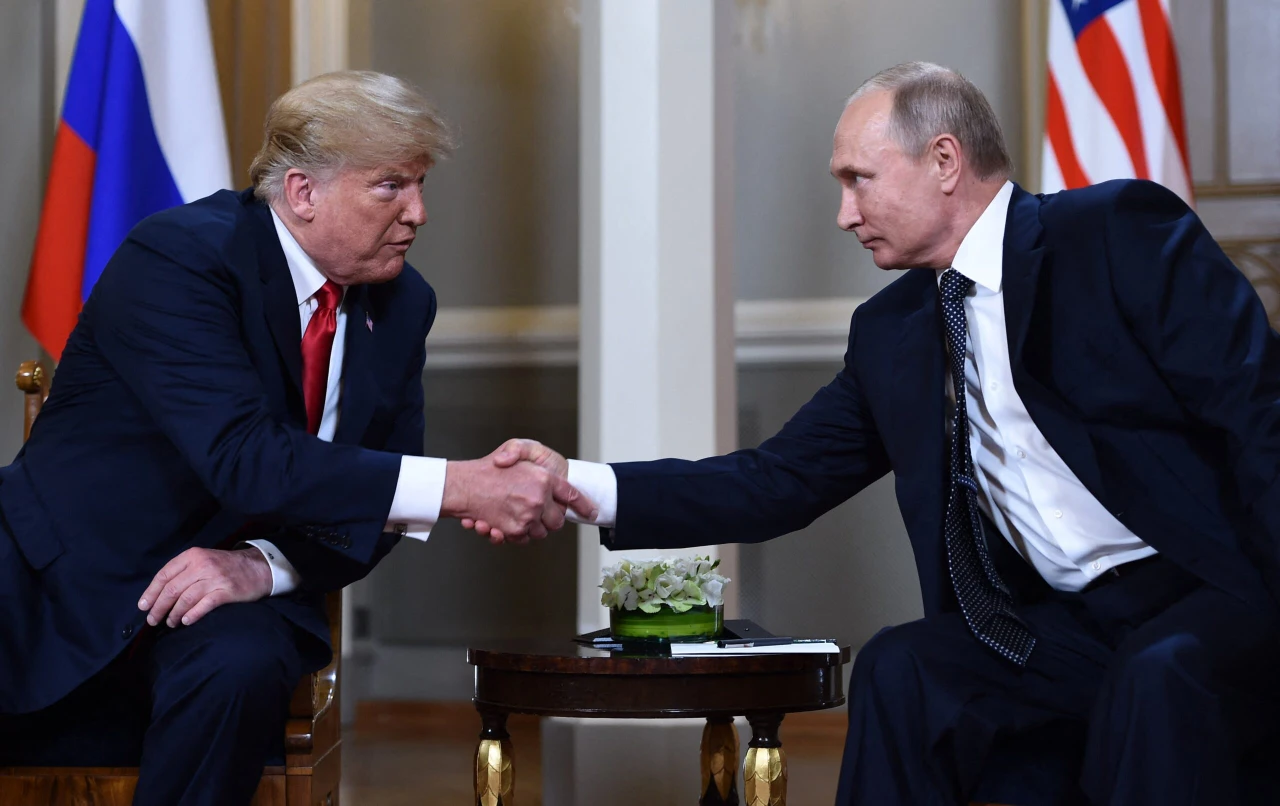Türkiye eyes $60B bilateral trade target with Germany
 Containers are seen at a terminal in the port of Hamburg, Germany November 14, 2019. (Reuters/Fabian Bimmer)
Containers are seen at a terminal in the port of Hamburg, Germany November 14, 2019. (Reuters/Fabian Bimmer)
Türkiye aims to expand its bilateral trade volume with Germany to $60 billion, driven by enhanced cooperation in green transformation, supply chains and other key sectors.
Last year, the two nations recorded a trade volume of approximately $50 billion, with Turkish exports to Germany valued at $21.1 billion, and German exports to Türkiye amounting to $28.7 billion, according to data from TurkStat, as compiled by Anadolu Agency.
Türkiye and Germany boost ties in green energy, supply chains
The goal to increase trade was reiterated by President Recep Tayyip Erdogan during a visit by German President Frank-Walter Steinmeier to Türkiye in April, where Erdogan emphasized the importance of collaboration, particularly in the defense industry.
At the 79th United Nations General Assembly in New York, Erdogan held discussions with German Chancellor Olaf Scholz, underscoring the ongoing talks to strengthen economic ties.

Strengthening economic cooperation between Türkiye, Germany
Turkish Treasury and Finance Minister Mehmet Simsek recently attended the Stern Stewart Institute’s 2024 summit in Germany, engaging with executives from over 50 German corporations. The summit highlighted investment opportunities in Türkiye, particularly in green energy and supply chains.
Furthering the economic dialogue, Turkish Transportation and Infrastructure Minister Abdulkadir Uraloglu participated in the world’s largest railway exhibition, InnoTrans 2024, in Berlin. Additionally, Türkiye’s Trade Minister Omer Bolat is set to co-chair the fifth Term Meeting of the Türkiye-Germany Joint Economic and Trade Commission (JETCO) with German Vice-Chancellor and Economic Affairs Minister Robert Habeck in Berlin.
Bolat expressed confidence in achieving the $60 billion bilateral trade target within the next few years, citing strong ties between the two nations.

Turkish economic contributions in Germany
Mehmet Ali Yalcindag, president of the Türkiye-Germany Business Council of the Foreign Economic Relations Board (DEIK), noted that the 3.5 million Turkish people living in Germany play a crucial role in the economy. These individuals generate over $55.7 billion in turnover through 100,000 enterprises, contributing significantly to the German economy.
Yalcindag also highlighted the strong position of Turkish services and automotive exports to Germany, noting that Türkiye’s geographic proximity to Europe benefits both Turkish and German firms. German auto companies, in particular, are incentivized to invest in Türkiye due to its strategic location in supply chains.

German investments in Türkiye
German companies have invested over $12 billion in Türkiye over the past 20 years, with total German investments since 1980 reaching $14.5 billion. Prominent German firms such as turbine-makers Enercon and Nordex have established production facilities in Türkiye, signaling potential collaboration in renewable energy and green technology sectors.
Other major German companies, including Allianz, Puma, and Borusan, also operate in Türkiye.
In addition to German investments in Türkiye, Yalcindag emphasized the growing interest of Turkish entrepreneurs in sectors such as tech, law, textile, and services in Germany, further strengthening economic ties between the two nations.



